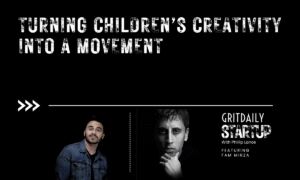Climate change discussions often focus on politics, opinion, and emotion. Norman Stewart, a physicist and trained meteorologist, wants to bring the focus back to science. His new book, Freed From the Iron Grip of Frost, explores the greenhouse effect and its history, while offering a clear, evidence-based perspective on how we understand climate change.
Stewart’s interest in the topic dates back to his time studying physics at Trinity College Dublin, when computer models of climate were first emerging. He later worked at the UK Met Office, gaining practical experience in meteorology before moving into industry. His book was born from noticing a gap. While countless titles discuss climate impacts and forecasts, few explain the underlying physics. Written during the pandemic, the book takes readers through 200 years of climate science history, focusing on key figures such as John Tyndall and Baron Fourier, whose early work helped define what we now know as the greenhouse effect.
A Historical and Scientific Approach
The book’s title is based on Tyndall’s description of how Earth’s natural greenhouse effect prevents the planet from being “held fast in the iron grip of frost.” Without this effect, global temperatures would be about 33°C lower, making much of Earth inhospitable. Stewart’s goal is to show how scientific understanding of these processes developed, how it has evolved, and what we still do not fully know today.
One area of uncertainty he highlights is the role of water vapor and clouds in global temperature regulation. While increasing carbon dioxide and methane levels are known to affect temperatures, the extent of that impact and how it interacts with water vapor and cloud cover remains one of the least understood areas in climate modeling. Stewart notes that even recent changes in cloud patterns have shown a measurable impact on global temperatures, underscoring how dynamic and complex the Earth’s climate system is.
Avoiding Overconfidence and Polarization
Stewart cautions against overconfidence in current models and media narratives that often present climate change in absolute terms. He argues for humility, pointing out that scientific understanding evolves, and history shows that new discoveries can dramatically shift our understanding of Earth’s climate. He also stresses that science is about evidence, not belief or consensus polls, and that the best path forward is staying focused on data rather than ideology.
Looking Ahead
For Stewart, the stakes are high: climate change is one of the biggest science-based social issues of our time. His goal is not to deny or amplify fear, but to encourage a deeper understanding of how science works, from what we know to what we don’t and where research still needs to go.
Freed From the Iron Grip of Frost is available now on Amazon. Readers can expect a historical perspective combined with clear explanations of climate science fundamentals, an approach designed to help people cut through the noise and focus on evidence.
Want more Grit Daily Startup Show? Take a look at past articles, head over to YouTube, or listen on Apple Podcasts or Spotify.








